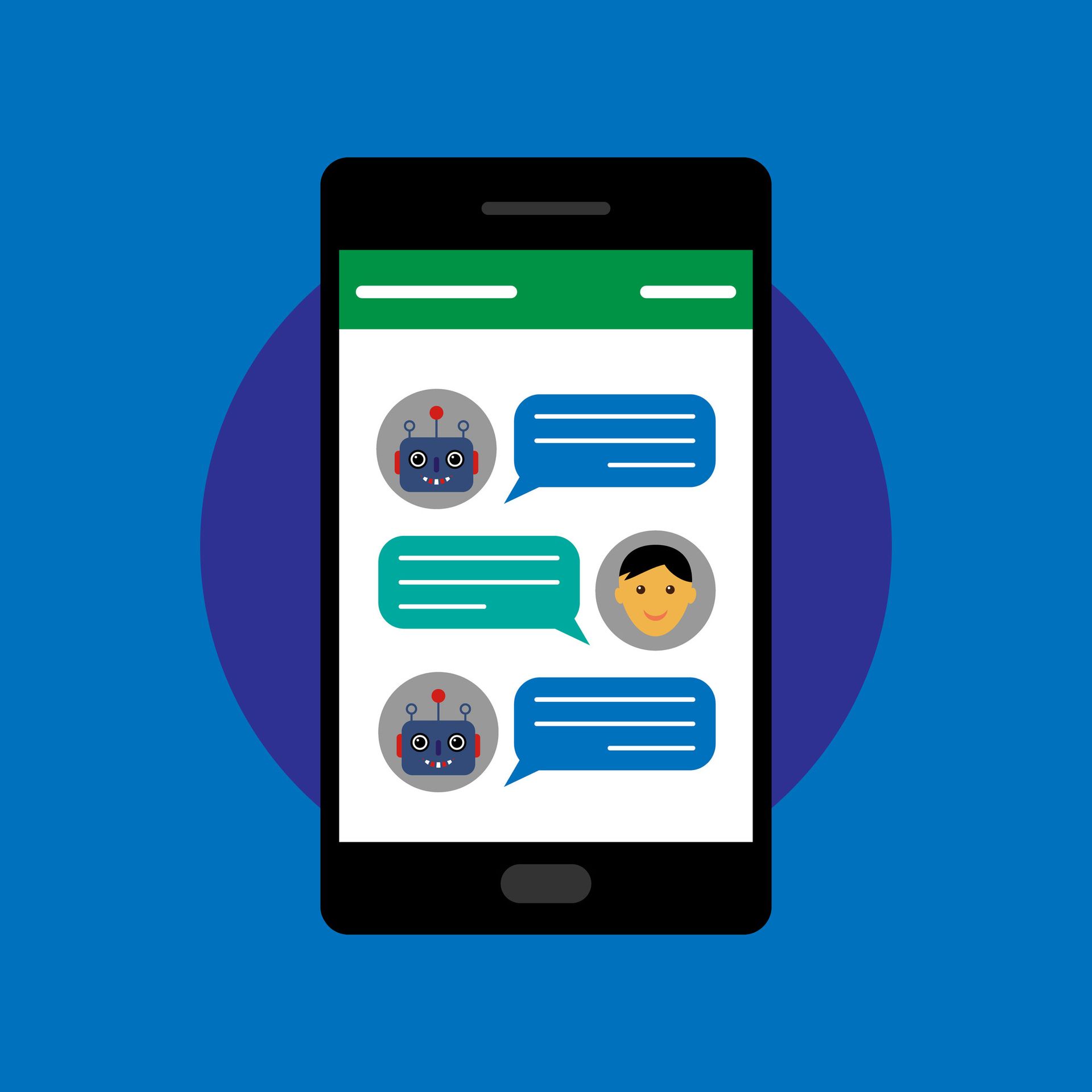AI Chatbots and Data Privacy What You Need to Know for Safe Conversations
Artificial intelligence chatbots are transforming how businesses connect with customers, streamline operations, and deliver personalized support.
Yet as these clever AI agents become more common, a critical question keeps surfacing—how are they handling your data? Knowing how AI chatbots interact with personal information is crucial for both businesses and individuals seeking reliable, ethical interactions.
This post explores what you need to know about AI chatbots and data privacy, sharing key insights, best practices, and how iUsed.ai sets a higher standard for safe, smarter conversations through its advanced AI solutions.
Understanding AI Chatbots and Their Data
AI chatbots are software programs designed to simulate human conversations. Powered by natural language processing and machine learning, they can answer questions, handle support requests, guide users through forms, and more.
You’ll encounter them across websites, messaging apps, customer portals, and even employee onboarding systems.
The power of a chatbot comes from its ability to process and learn from data. Here’s a closer look at the types of data AI chatbots collect and why it matters:
What Data Do Chatbots Collect?
- User Inputs: Chatbots capture your messages, questions, and responses for real-time processing.
- Behavioral Data: They often record how you interact with the system, including clicks, time spent, or choices made.
- Personal Information: Depending on their purpose, chatbots may ask for names, email addresses, appointment details, payment info, or other identifiers.
- Contextual Data: Some chatbots analyze the context of interactions (location, time, device) to tailor their responses or improve user experience.
Why Do Businesses Use AI Chatbots?
- Enhanced Customer Interaction: AI chatbots provide instant, 24/7 responses, boosting satisfaction and loyalty.
- Streamlined Processes: They automate repetitive tasks like scheduling or lead qualification, freeing up staff for higher value work.
- Personalization: By analyzing user data, chatbots offer tailored recommendations, relevant content, and targeted offers.
- Insightful Analytics: Businesses gain deeper understanding of customer needs, preferences, and pain points.
Data Privacy Concerns with AI Chatbots
While chatbots can make life easier, they also introduce new privacy risks. It’s important to understand the challenges so you can take informed steps to protect sensitive data.
What Are the Main Privacy Risks?
- Sensitive Information Overcapture: Sometimes, chatbots inadvertently collect more data than necessary. A simple support chatbot may ask for contact or payment info when it isn’t needed.
- Data Storage and Breaches: Mishandled data storage, weak encryption, or unauthorized access can expose user information to cybercriminals.
- Misuse or Unauthorized Sharing: Without clear guidelines, companies risk using customer data in ways users never agreed to, damaging trust and violating laws.
- Data Retention: Storing personal info longer than needed increases exposure and non-compliance risks.
Key Data Privacy Considerations
Ensuring privacy with AI chatbots isn’t just about security settings. It requires a holistic approach, starting with transparency and compliance.
Transparency and User Consent
- Inform Users Clearly: Always explain what info your chatbot collects and how it will be used.
- Gain Explicit Consent: Don’t process personal data unless users have given clear agreement. Simple, easy-to-understand consent forms help build trust.
- Privacy Notices: Display concise privacy policies wherever users interact with the chatbot.
Data Security and Storage
- Encryption: Secure all data in transit and at rest with strong encryption protocols.
- Access Controls: Restrict who can view, export, or modify chatbot data. Use authentication and regular audits.
- Minimize Data Collection: Only collect what’s absolutely necessary for the chatbot’s function.
- Regular Assessments: Review stored data frequently, deleting what’s no longer needed.
Regulatory Compliance
Complying with privacy laws is a non-negotiable, especially as requirements tighten worldwide:
- GDPR (Europe): Mandates clear consent, data minimization, user rights to deletion, and breach notification.
- CCPA (California): Provides rights to know, delete, and opt-out of data selling for California residents.
- Other Regulations: Many regions have unique rules (such as Canada’s PIPEDA or Australia’s Privacy Act). Always check jurisdiction-specific requirements.
Successful compliance means understanding obligations and updating your chatbot workflows and documentation accordingly.
How iUsed.ai Safeguards Data Privacy
At iUsed.ai, we’re obsessed with smarter, safer conversations. Here’s how we make data privacy a foundational part of our AI chatbot platform:
Transparent Practices
We inform every customer and user about what data our AI Agents handle and why. Privacy policies are clear, jargon-free, and readily available wherever you interact with our platform.
Consent and Control
Users must provide explicit consent before chatbots collect or process personal details. With customizable consent forms and adjustable settings, businesses using iUsed.ai can tailor privacy notifications and opt-in prompts to their audience.
Fortified Security Standards
- End-to-End Encryption: Every message and dataset is encrypted in transit and at rest.
- Granular Access Management: We control which team members or integrations can access sensitive data, logging all activity for accountability.
- Regular Security Reviews: iUsed.ai conducts regular audits and vulnerability assessments to continuously enhance our security framework.
Regulatory Adherence
Whether you operate under GDPR, CCPA, or another framework, iUsed.ai is built for compliance. Our platform is updated in line with evolving data privacy laws, and we provide resources to help your business stay ahead.
Responsible AI Personalization
Our advanced AI Agents use deep data insights to personalize customer experiences—but we never compromise on privacy. Adaptive algorithms optimize responses and offers without storing unnecessary user data. This means every interaction is relevant and secure.
Best Practices for Businesses Using AI Chatbots
If your company is exploring or already using AI chatbots, here’s how to put privacy into practice:
- Map the Data: Know exactly what information your chatbot collects and why.
- Prioritize Consent: Use opt-in flows and clear consent banners; never assume consent.
- Limit Data Scope: Avoid asking for sensitive data unless required for the interaction.
- Monitor and Audit: Schedule regular privacy audits to check for leaks or compliance gaps.
- Educate Your Team: Train employees on data privacy best practices and the consequences of non-compliance.
- Review Vendor Policies: When using third-party AI chatbot solutions, ensure their privacy measures align with (or exceed) your own standards.
- Rapid Breach Response: Prepare an incident response plan so that users and regulators are notified quickly in case of a data breach.
Building Trust With Every Interaction
AI chatbots offer unrivaled opportunities for business growth and customer satisfaction, but only when grounded in transparency and respect for users’ data. By choosing privacy-first solutions, you create safer, more engaging digital conversations.
If you’re ready to empower your team with smarter conversations that put privacy at the forefront, iUsed.ai is your trusted partner. Our platform delivers adaptive, AI-powered customer engagement and custom chatbot development without sacrificing data security.









